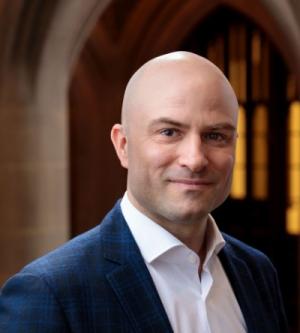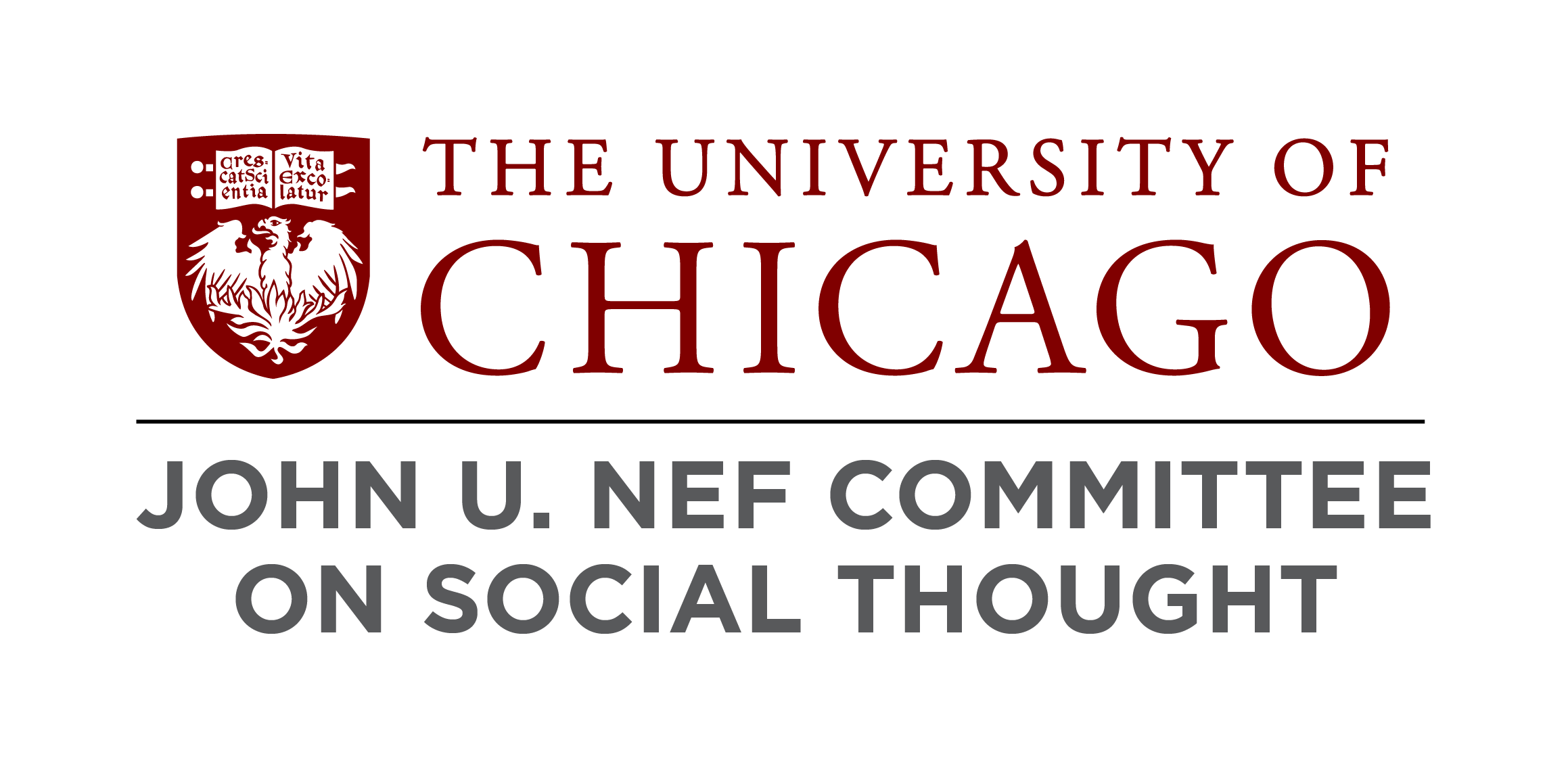
MAILING ADDRESS
Department of English
1115 E. 58th Street
Chicago, IL 60637
ABOUT
Timothy M. Harrison
My work examines the conditions that enabled the literary representation of the first-person perspective in early modernity. My writing and teaching focus on sixteenth- and seventeenth-century English literature, often as it relates to philosophy, theology, the sciences, and the literatures of other cultures and periods. I am jointly appointed in the Department of English and in the John U. Nef Committee on Social Thought. I am also Associated Faculty in the Philosophy of Religion at the Divinity School.
My first two books explore the history of first-person experience in relation to the beginning and end of human life. Coming To: Consciousness and Natality in Early Modern England (University of Chicago Press, 2020) examines the role played by poetry in the emergence of the concept of consciousness. Somewhere between the work of René Descartes in the 1640s and the writings of John Locke in the 1690s, the modern concept of consciousness was born. Coming To analyses the historical genesis of this concept by exploring the poetry and pro Traherne. I argue that these writers attempt to clarify the nature of consciousness by describing in first person terms what it is like for human thought to begin. In John Donne's Physics (University of Chicago Press, 2024), my co-author Elizabeth D. Harvey and I reconsider Donne’s representation of the body and embodiment in the Devotions Upon Emergent Occasions. Written during an epidemic that ravaged London in 1623, when Donne fell gravely ill, Devotions grapples with the profound epistemic, social, religious, and political changes that ch aracterized early seventeenth-century England through a first-person account of what it is like to linger at the threshold of death.
I a m currently working on two book projects. In Horizons of the Mind: Self and World in Early Modern Persian and English Poetry, my co-author Jane Mikkelson and I construct a comparative literary history of mindedness. We use three comparative methods to examine the work of tw ew3o philosophical poets—one from northern India, one from rural England—both of whom composed poetry that explores questions about the nature of the human mind: Bidel of Delhi and Thomas Traherne. First, we use a formal approach that disregards geographical and historical contexts to reveal the surprising similarities that justify our comparative endeavor. Second, we pursue weak comparisons that attempt to explain these similarities by locating each poet within their own cultural, political, religious, philosophical, and literary traditions. And third, we undertake a series of historical comparisons that show how Traherne and Bidel belonged to overlapping intellectual worlds organized around the Afro-Eurasian spread of medical ideas promulgated by Galen, philosophical notions inspired by Plotinus, and the psychology of Ibn Sīnā, known as Avicenna in Latin.
In The Anthropology of John Milton, I examine the most important concept in Milton’s writing—human freedom—by reading Paradise Lost in relation to its literary, rhetorical, philosophical, and theological contexts. What are we? Who are we? For Milton, the answers to these questions lie in a proper understanding of human freedom. I argue that, for Milton, such understanding is to be found not in philosophy or theology, but in poetry. I thus focus on what we might call Milton’s poetic anthropology. In the first half of the book, I explore the preconditions that, for Milton, underpin human freedom: the divine act of creation, the nature and structure of life itself. In the second half, I examine how Milton theorizes and represents human action and human politics.
SELECTED PUBLICATIONS
BOOKS
Coming To: Consciousness and Natality in Early Modern England (University of Chicago Press, 2020).
John Donne's Physics. Co-authored with Elizabeth D. Harvey. (University of Chicago Press, Spring 2024).
ARTICLES AND BOOK CHAPTERS
“‘Every Living Thing’: Life and Endeavor in Milton’s Paradise Lost,” Representations (forthcoming).
“‘Worlds Together Shined’: Bidel, Traherne, and Collaborative Comparison,” co-authored with Jane Mikkelson, PMLA (forthcoming).
“Fictions of Human Nature in Seventeenth-Century Poetry and Philosophy,” English Literary Renaissance 52.3 (2022): 358-70 (part of Theorizing Fiction in the Early Modern Period, a special issue edited by Wendy Beth Hyman and Jennifer Waldron).
“What Was Early Modern World Literature?,” co-authored with Jane Mikkelson, Modern Philology 119.1 (2021): 166-88 (part of Multiplicities: Recasting the Early Modern Global, a special issue edited by Ayesha Ramachandran and Carina Johnson).
“Confusion: Cymbeline, The Merchant of Venice, The Winter’s Tale,” in Shakespeare and Emotion, ed. Katharine Craik (Cambridge: Cambridge UP, 2020), 330-43.
“John Donne, the Instant of Change, and the Time of the Body,” English Literary History (ELH) 85.4 (Winter 2018): 909-39 (recipient of the John Donne Society Award for Distinguished Publication).
“Personhood and Impersonal Feeling in Montaigne’s ‘De l’exercitation,’” Modern Philology 114 (2016): 219-42.
“Adamic Awakening and the Feeling of Being Alive in Paradise Lost,” Milton Studies 54 (2013): 29-58 (recipient of the Milton Society of America’s Albert C. Labriola Award).
“Embodied Resonances: Early Modern Science and Tropologies of Connection in Donne’s Anniversaries,” co-authored with Elizabeth D. Harvey, English Literary History (ELH) 80 (2013): 981-1008.
 THE UNIVERSITY OF CHICAGO
THE UNIVERSITY OF CHICAGO

